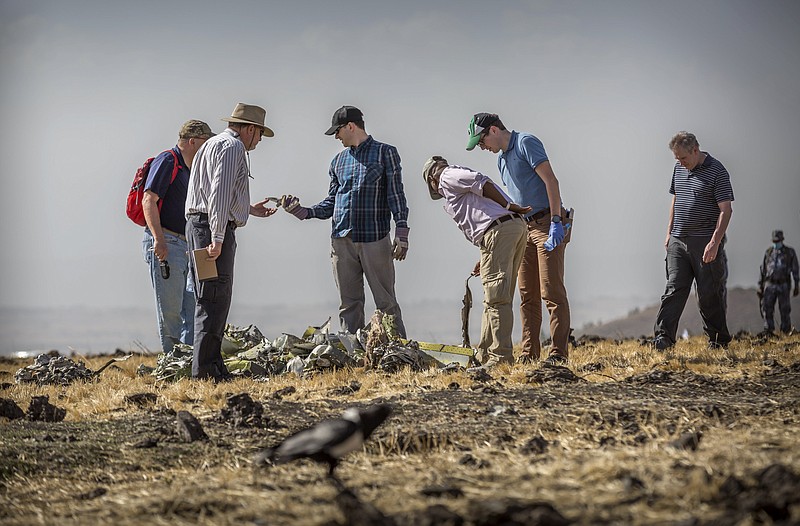HEJERE, Ethiopia (AP) — Much of the world, including the entire European Union, grounded the Boeing jetliner involved in the Ethiopian Airlines crash or banned it from their airspace Tuesday, leaving the United States as one of the few remaining operators of the plane involved in two deadly accidents in just five months.
Britain, France and Germany took steps to keep the Boeing 737 Max 8 out of the air, joining Asian and Middle Eastern governments and carriers that also gave in to safety concerns in the aftermath of Sunday’s crash, which killed all 157 people on board.
Indicating possible trouble with a reportedly damaged flight data recorder, British regulators said they based their decision on the fact “we do not currently have sufficient information from the flight data recorder we have.”
Turkish Airlines, Oman, Norwegian Air Shuttle and South Korean airline Eastar Jet were among the latest carriers to halt use of the Boeing model. Ireland, the Netherlands, Malaysia, Australia and Singapore suspended all flights into or out of their cities.
A Turkish Airlines official said two Britain-bound planes returned to Istanbul after British airspace was closed to the aircraft. The official spoke on condition of anonymity because he was not authorized to speak publicly.
U.S.-based Boeing has said it has no reason to pull the popular aircraft from the skies. It does not intend to issue new recommendations about the aircraft to customers. Its technical team joined American, Israeli, Kenyan and other aviation experts in the investigation led by Ethiopian authorities.
The Federal Aviation Administration said it expects Boeing will soon complete improvements to an automated anti-stall system suspected of contributing to the deadly crash of another new Boeing 737 Max 8 in October.
Some U.S. airlines expressed support for the Boeing model, and American Airlines and Southwest continued flying them. A vice president for American, the world’s biggest carrier, which has 24 Max 8s, said they had “full confidence in the aircraft.”
Safety experts cautioned against drawing too many comparisons too soon with the Lion Air crash in Indonesia in October that killed 189 people.
But others in the U.S. began pressing for action.
The Association of Professional Flight Attendants, which represents more than 26,000 flight attendants at American Airlines, called on CEO Doug Parker to “strongly consider grounding these planes until an investigation can be performed.”
Consumer Reports called on airlines and the FAA to ground the jets until a thorough safety investigation is complete.
Even President Donald Trump weighed in, tweeting additional “complexity creates danger” in modern aircraft and hinders pilots from making “split second decisions” to ensure passengers’ safety.
He did not specifically mention the crashes but said, “I don’t know about you, but I don’t want Albert Einstein to be my pilot.”
The Ethiopian Airlines plane crashed six minutes after taking off for Nairobi, killing people from 35 countries.
A pilot who saw the crash site minutes after the disaster told the AP the plane appeared to have “slid directly into the ground.” Capt. Solomon Gizaw was among the first people dispatched to find the plane. The wreckage was discovered by Ethiopia’s air force.
“There was nothing to see,” he said. “It looked like the earth had swallowed the aircraft. … We were surprised!” He said it explained why rescue officials quickly sent bulldozers to begin digging out large pieces of debris.
Ethiopian Airlines, widely seen as Africa’s best-managed airline, grounded its remaining four 737 Max 8s until further notice. The carrier had been using five of the planes and was awaiting delivery of 25 more.

